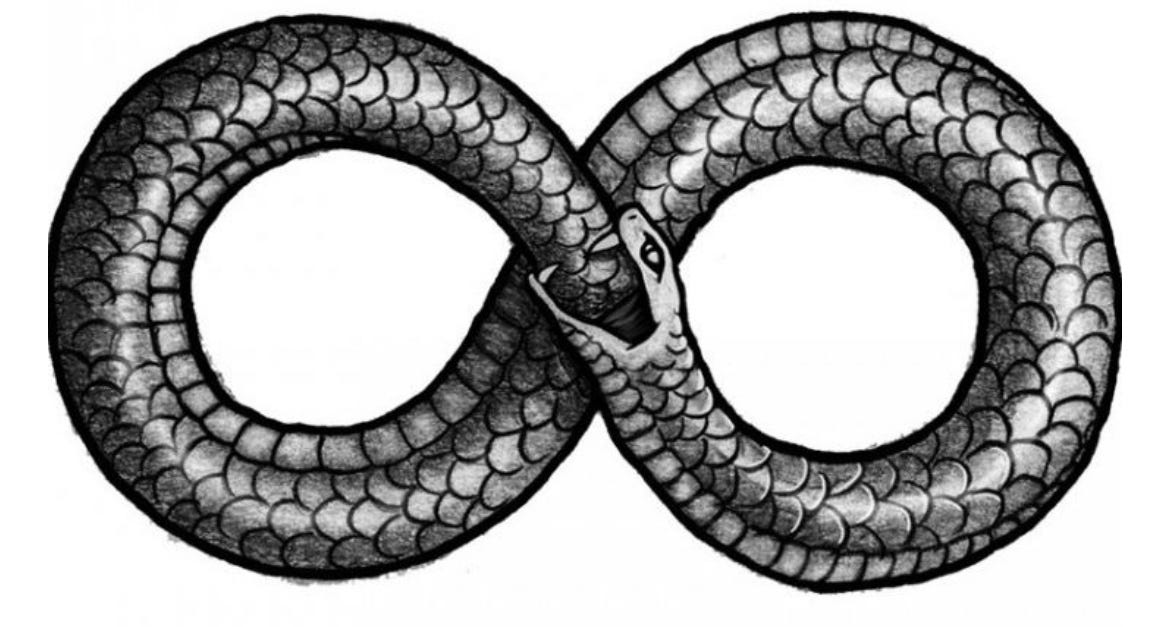The Never Ending Story
Detaching From Ouroboros
Modern man tends to think about mythology as merely ancient stories about gods and goddesses, the natural world, and fantastic creatures. Some recognize that these stories have deeper meaning and relate to the pre-history of peoples and tribes, major catastrophic events, and solar and stellar phenomena. And some even believe that these stories are embedded into our psyche, and that in some way are shared by humanity in some sort of collective unconscious, and that these myths continue to appear to us in the form of symbols and pictures in our dreams, our visions, and even in the meaningful coincidences that appear from time to time in our daily lives.
One of the most ancient and universal symbols that appears in countless creation myths around the world is the self-eating serpent or dragon, most often as a circle or an endless loop. Often this symbol seems to represent the universe, the world, or just the infinite circle of life and death. The Greeks named this symbol the Ouroboros, or the tail-eater.
In Jungian psychology, the Ouroboros is a fundamental archetype of primordial life, the unconscious existence of all living things, and the natural state of mankind both in the womb, and primitive humanity prior to achieving consciousness and individuality. But not just historical, primordial mankind - for every human being begins in the womb and must emerge from unconsciousness as it grows up from childhood into a conscious adult, and we all experience this each day as we fall asleep and sink once again into unconsciousness, to be reborn in the morning into consciousness.
Many humans never achieve full consciousness - they remain to a greater or lesser degree bound to the primordial collective unconsciousness, whether because they refuse to grow up or fail to adapt successfully to the conscious world. They are in a very real sense still in the womb, and their individual development has stopped.
If we want to fully develop as humans and find meaning in our lives, we must detach from the ouroboros, enter the world and grow up to be fully functioning individuals.



